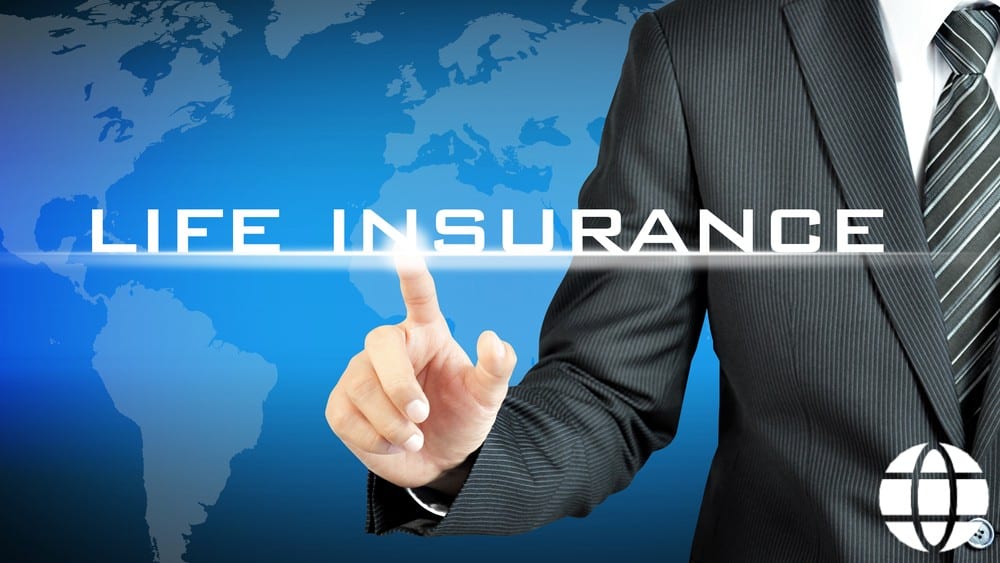Hello and welcome to another loaded article on public insurance adjuster.
Here, you will learn about who public insurance adjusters are, their duties, and the benefits of engaging them.
In this article, we shall look at:
Keep reading to get more detailed information!
What is a Public Insurance Adjuster?
A public insurance adjuster is an independent insurance contractor who negotiates with insurance companies for a set percentage fee on behalf of homeowners or business owners who have been victims of natural disasters.
Many states license these individuals; some, however, do not.
In addition to an adjuster’s fee, public adjusters also typically receive a percentage of any funds they’re able to recover from insurance companies.
Some jurisdictions make it mandatory for property owners to use a licensed public adjuster after certain natural disasters (e.g., Hurricanes).
A licensed public adjuster helps property owners submit valid claims quickly so that they can move on with their life sooner than later.
Public adjusters are typically more effective at getting money back than are private appraisers since their only interest is maximizing a client’s recovery rather than minimizing your claim.
However, public adjusters can take longer to complete their work since they’re compensated based on success.
On average, it takes 3 months or longer between having an appraisal done and getting money back into your hands compared to having 2-3 weeks when dealing directly with an insurance company.
Why Choose a Public Insurance Adjuster?
When people need an insurance claim adjuster, they often think about someone working on behalf of their insurance company.
But did you know that an insurance policyholder can choose to use a public adjuster instead?
An insured party hires a public insurance adjuster to represent them with their own insurance company.
Unlike private or independent adjusters, who insurance companies usually hire, a public adjuster has no affiliation with any insurer.
On top of that, good public adjusters have expertise that can be particularly useful for complicated claims.
They may also charge lower fees than some private adjusters or insurance companies.
However, you should note that choosing a public adjuster will generally affect your settlement amount.
Therefore, when dealing with public insurance adjusters, it’s always wise to look into several insurance policies offered by different insurers before signing anything.
The most common reasons for hiring a public adjuster include (but are not limited to):
- Your insurer has refused to pay out on your claim even though you’ve sent in all required paperwork;
- Your policy only covers part of what you’re seeking;
- You believe an insurer is trying to deny an injury claim unfairly because they don’t want you involved in their system;
- Claimants have tried without success for years to resolve an issue with their insurance company directly having run out of options;
- A total loss claim seems too complex for self-representation; as such, direct negotiation with insurers is probably a bad idea.
- You have a large claim.
Public Insurance Adjuster Compensation
Are you looking for an insurance company to assist with your claim?
Many property owners choose to hire public insurance adjusters to work on behalf of insured clients.
There are no standard rates with public insurance adjuster fees.
In fact, in many states, no laws state how much a public adjuster should charge.
However, an adjuster’s fees cannot exceed 20% of a property owner’s total claim in Florida.
So although many states set legal limitations on what a private adjuster can charge, none prohibit or cap what a public one charges.
Some public adjusters charge a flat fee or commission based on their client’s settlement percentage.
Like private insurance adjusters, public ones may increase their rates if particular circumstances are involved in your case—for example, extensive damage or multiple parties involved.
But overall public adjuster rates tend to be more affordable than those charged by private companies.
How to become a Public Insurance Adjuster?
Anyone can apply to become a public insurance adjuster, but you must get certified by your state to have clients.
One factor that may cause you to rethink becoming a public insurance adjuster is if you live where many professional agencies do adjust claims.
You may start by working for one of these agencies or consider moving somewhere with less competition for adjusting jobs.
Suppose it’s not something you’re interested in doing long-term. In that case, becoming a public insurance adjuster could be an excellent way to start your career as an agent or agency employee.
Public Insurance Adjuster Certification
In most states, public insurance adjusters must pass a test to get their certification.
The state-administered exams cover general knowledge about working as an insurance company adjuster, local and state laws governing property claims, and other miscellaneous information that can help you do your job well.
Passing these tests can provide a quick confidence boost if you’re unsure about your knowledge base.
Since your employer is legally responsible for handling all insurance-adjusting claims (no matter where they occur), passing an exam related to one jurisdiction could eventually benefit you if you take a new position at another office.
At any rate, it never hurts to keep learning!
You might want to invest in self-study materials and prepare yourself with practice questions—it could come in handy someday.
The Pros and Cons of Public Insurance Adjusters
When dealing with insurance claims settlement, it helps to turn to someone who can advocate for you.
Public insurance adjusters are designed to help victims receive fair compensation for their losses by playing an intermediary role between you and your insurer.
However, there are pros and cons associated with public adjusters.
You can decide for yourself if hiring one is worth it or not.
In some cases, private insurance companies may offer up more money than a public adjuster would be able to negotiate on your behalf.
Though it might take time—and lots of energy—to pursue these extra payouts on your own without professional help.
Consider these pros and cons to figure out if public adjusters fit you.
With everything in mind, you should have a better idea of whether hiring a public adjuster is in your best interest.
1) Pro: They Can Help Aggressively Negotiate Rates
A big pro of using a public insurance adjuster is that they’ll aggressively work toward negotiating rates on your behalf.
Here, it isn’t so much about bringing in any additional cash as it is about decreasing how much you’ll have to spend down the line because of medical expenses, lawsuits, and lost wages due to injury while looking after yourself after an accident.
While you won’t bring in any extra money from a successful negotiation, it does guarantee that your costs stay low.
2) Con: There Is No Guarantee That They Will Succeed
While insurance claims often end well for public adjusters, no two claim disputes are identical—so what works with one claim may not work with another case.
No guarantee hiring a public adjuster will put you on the fast track to being reimbursed relatively.
Your rate negotiations might go nowhere, and at worst, they could even lead to them collecting fees from both sides while providing little-to-no benefit.
3) Pro: Their Slices Are Small
Public adjusters charge minimal fees compared to litigation lawyers or other legal professionals involved in similar work.
If you want to get paid out quickly and aren’t worried about exact dollar amounts, then a public adjuster might be perfect for you.
4) Con: You Have to Pay Them Regardless of How Long It Takes
If your deal with a private lawyer ends badly, you don’t owe them any more money beyond whatever initial fee they charge you before going into battle—but that’s not true when it comes to public adjusters.
For example, suppose he agrees to handle an insurance dispute on your behalf but doesn’t succeed until years later (meaning months without payment). In that case, he’s still entitled to get paid for his services during those long months where he was unsuccessful.
So if you’re eager to receive payments for your insurance payout and want to know precisely how long it will take, a public adjuster probably isn’t your best option.
5) Pro: All Parties are in agreement
Public adjusters specialize in insurance disputes, which means that everyone is on board with hiring them, and all of those involved share information regarding your case.
When a public adjuster takes on your disagreement with an insurance company, everyone gets regular updates throughout each stage of mediation—which can be vital if you have serious concerns about a deal or questions you’d like answered immediately.
6) Con: Getting Everything in Writing Could Take Time
This business relationship is not regulated by state governments or laws within a given area—it’s overseen on an individual basis by contract.
Therefore, all agreements and terms of your contract with a public adjuster are subject to discussion, negotiation, and even change.
From our perspective, getting it in writing is a good thing.
After all, we’re not fans of adhering to verbal agreements or trusting that anyone will live up to informal arrangements.
But you might see things differently—after all, nothing’s written in stone in an agreement with a public adjuster.
If you can’t trust them for any reason—and if you have no one else available for recommendations on hiring a trustworthy attorney or insurance claim representative—then it might be best not to hire one at all.
As you can tell, there are pros and cons to hiring a public adjuster.
Depending on your situation, they may be ideally suited for you—or not at all.
If you want to hire one, remember that you can renegotiate while policies are effective.
So make sure that you have your questions answered beforehand and ensure it’s all outlined in writing.
Protect yourself by taking advantage of any written document outlining a contract or services.
It’s easy to forget about these types of details when caught up in emotion surrounding a car accident or property damage—but it’s imperative!
Conclusion
Make sure you know much about the adjuster you’re hiring.
In many cases, public adjusters work as representatives of insurance companies.
Before you hire a public insurance adjuster, here are some things to keep in mind: They may also represent insurance companies.
Sometimes public adjusters don’t even negotiate with your insurance company but merely pass along what they consider your policy limits.
Then, once they get paid their percentage, they help another victim.
You must understand what you’re getting in return for paying your public adjuster before deciding whether or not to hire one.
Not all states require that public insurance adjusters be licensed—make sure yours is!
Also, ensure to check if the adjuster belongs to the National Association of Public Insurance Adjusters (NAPIA) to ensure they follow ethical codes.
NAPIA is one of two national trade associations that offer a voluntary credentialing program for public insurance adjusters.
Membership in NAPIA or its state chapters indicates that your claims representative has been adequately trained and licensed by their state agency as well as provided with specialized continuing education credits.
You can also contact your local Better Business Bureau or state attorney general’s office to learn more about any particular individual adjusting firm you’re considering hiring, who may have any complaints filed against them by clients.
So shop around with other firms as well before deciding on one!









